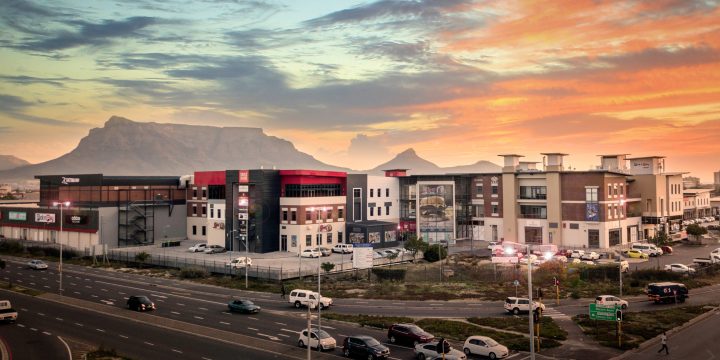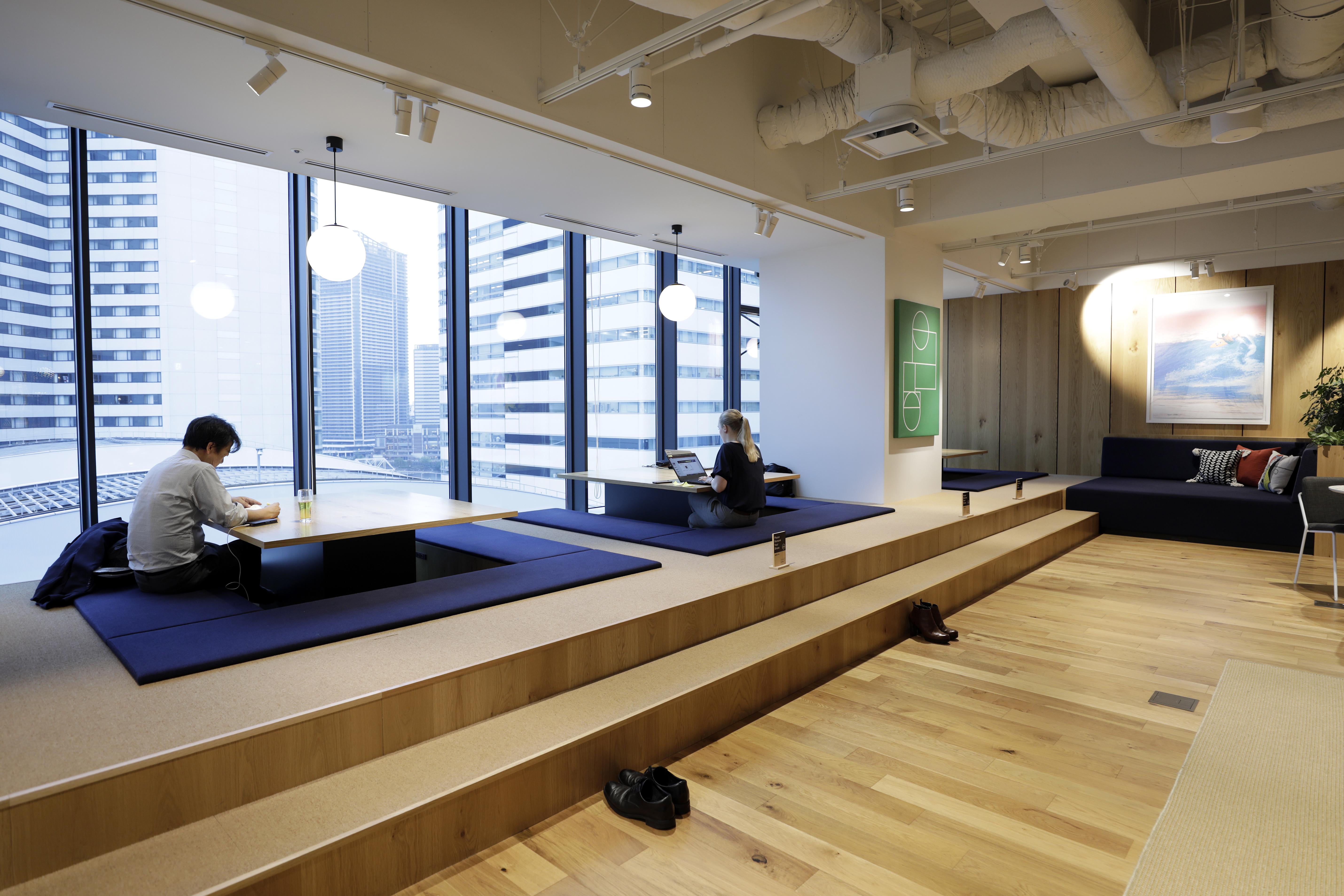BUSINESS MAVERICK
‘Zoom Boom’ thumps office space market

For obvious reasons, more commercial property players are reporting lower rental yields and higher vacancy rates, but it might be an oversimplification to call the foundations of this section of property unsound as there are some nodes that still show promise.
It is estimated that the commercial property industry lost in the region of between R6-billion and R8-billion in rental income over the lockdown period.
Though it’s difficult to fully quantify, as not all the statistics are available, a look at some of the recent financial results of JSE-listed Real Estate Investment Trusts (REITs) illustrates just how tough it has been.
There are about 34 listed REITs with a market capitalisation of R360-billion at present, which has halved in the past six months.
But in a recent PSG Think Big series webinar, Estienne de Klerk, CEO of Growthpoint Properties, who is also chairman of the South African REIT Association, said the impact of Covid-19 on commercial rentals might not be as bad as assumed, as the work-from-home revolution caused by lockdowns might be later offset somewhat by other factors, such as the fact that working from home doesn’t suit everyone and often depends on the level of employees’ skills, for example.
De Klerk said that property rentals were actually very competitive in South Africa, particularly when compared with other parts of the world.
“An office near the Cape coastline or in any of the South African prime office nodes, as an example, would have much higher rentals in a similar set elsewhere in the world.”
Keillen Ndlovu, head of listed property funds at Stanlib, however, says the office market was already oversupplied before the emergence of Covid-19 and the working-from-home concept just made it worse.
Corporates are consolidating space from various locations into one big head office, such as Sasol, PwC, Deloitte and Discovery, across Gauteng, he says.
“These companies have been moving from older buildings and segregated locations to new and centrally located office developments in Sandton, Waterfall Estate and Rosebank, for example.
“A challenging economy and the national lockdown continue to create a tough operating environment for office landlords. As a result, most REITs have been putting secondary office properties up for sale. We are likely to see a sharp decline in new office developments,” he says.
“We may see 20% to 30% less appetite for space as leases expire, i.e. corporates requiring less space. As a result, vacancies are likely to increase. It’s still early days, but office landlords will need to be more creative with filling their excess office space. Alternative uses could be residential, self-storage, schools or medical suites,” Ndlovu adds.
But experts across the board say that working from home is not a fit for all and that some forms of foot traffic will eventually return.
John Loos, Johannesburg-based property economist at FNB, says the sudden forced “Zoom Boom” has potentially changed a lot of things.
“I say ‘potentially’ because we don’t know the extent to which remote working will continue, following the Covid-19 crisis.”
What we do know, however, is that working remotely has been shown to be remarkably effective; many employees are understandably big fans of the setup, because of the major cost and time saving on commuting. In certain corporates across the world, CFOs are seeing a potential opportunity to save on costly office space and increase productivity.
“At present, however, it is tough to see a clear future ‘winner’ in terms of commercial property nodes or niches,” Loos says. The office property sector has been under some pressure in recent years and that pressure looks set to become more intense.
In Joburg, according to the South African Property Owners’ Association (Sapoa) Office Vacancy Survey for the second quarter to July 2020, the big Sandton node’s office vacancy rate looks far from encouraging at 17%, and it doesn’t look any better northwards, with Morningside recording a 21.1% vacancy rate, Rivonia 15.8% and Sunninghill 19.2%. Moving “inwards” from Sandton towards the CBD, one finds some slightly lower vacancy rates in the likes of Rosebank 11%, Hyde Park 10.8% and Melrose/Waverley 13.9%.
“Even these don’t suggest strong office space demand growth and any major supply constraint,” says Loos.
The Rosebank area has had some noticeable upgrades in office, retail and residential, benefiting too from a Gautrain Station over the past decade, and appears to have become a significantly more popular place to be located “office-wise” as well as living-wise.

Members sit at low chabudai-style tables inside the WeWork Ocean Gate Minatomirai co-working office space, operated by The We Company, in Yokohama, Japan, on Friday, Oct. 11, 2019. Photographer: Kiyoshi Ota/Bloomberg
Earlier in 2020, Anglo-American announced the relocation of its corporate head office from the Johannesburg CBD to Rosebank, which is arguably reflective of the desirability of the suburb as an office node. Standard Bank moved a large part of its wealth and investment operations to a freshly built building there in 2013.
Growthpoint Properties’ recently released full-year results to 30 June 2020 show that its local office portfolio enjoyed numerous successes during the year, fully letting its new development at 144 Oxford Road in Rosebank, including to Anglo American. However, office portfolio vacancies rose by 5% to 15.4% during the financial year. The 39,800m2 left empty by Deloitte at Woodmead Office Park was leased to Altron and mining outfit DRA Global for a fixed few years, but the lockdown delayed occupation, which will probably only happen in 2021.
In Cape Town, Quintin Rossi, CEO of Spear REIT Ltd, the only Western Cape-focused property outfit in the country, says well-established office nodes in the Mother City have been rather quiet in the past few months. But he believes that as South Africa moves closer towards Level 1 lockdown restrictions and the majority of the economy gets back into action, the sleepy office sector will reawaken.
“While the vacancy rate in the office sector has increased from a historical average of about 7% to 8.9%, I do believe that as some level of normality returns to the subsector and the knee-jerk reaction of only having a work-from-home strategy subsides, that this vacancy rate will normalise back to between 6% and 7%,” he says.
Rossi has no doubt that rental yields will soften as the competition heats up for landlords as they attempt to refill vacancies across the region.
“One cannot omit the fact that despite the Covid-19 impact on the Cape Town office sector, we have noted a willingness among tenants to return to their previous ways and place of work,” he says.
As a specialist Cape Town investor with a substantial commercial property portfolio, Spear has also seen vacancy creep up in its office portfolio, but has also seen an increase in new inquiries for office space as potential tenants look to enter varied parts of established commercial office nodes around Cape Town.
Spear owns office space in Tygervalley, N1 City, Century City and the Cape Town CBD, and has maintained an impressive 92% tenant retention rate in its office portfolio for the six-month reporting period to August 2020.
Tough times lie ahead for local landlords and the focused, hands-on and actively managed property businesses will pull through with fewer scars and maybe just a small limp, as they adjust to a new normal, Rossi concludes.
The national vacancy rate for the second quarter of 2020, according to Sapoa, is 12.3%, the highest it has been in 16 years. DM/BM



















 Become an Insider
Become an Insider
Comments - Please login in order to comment.